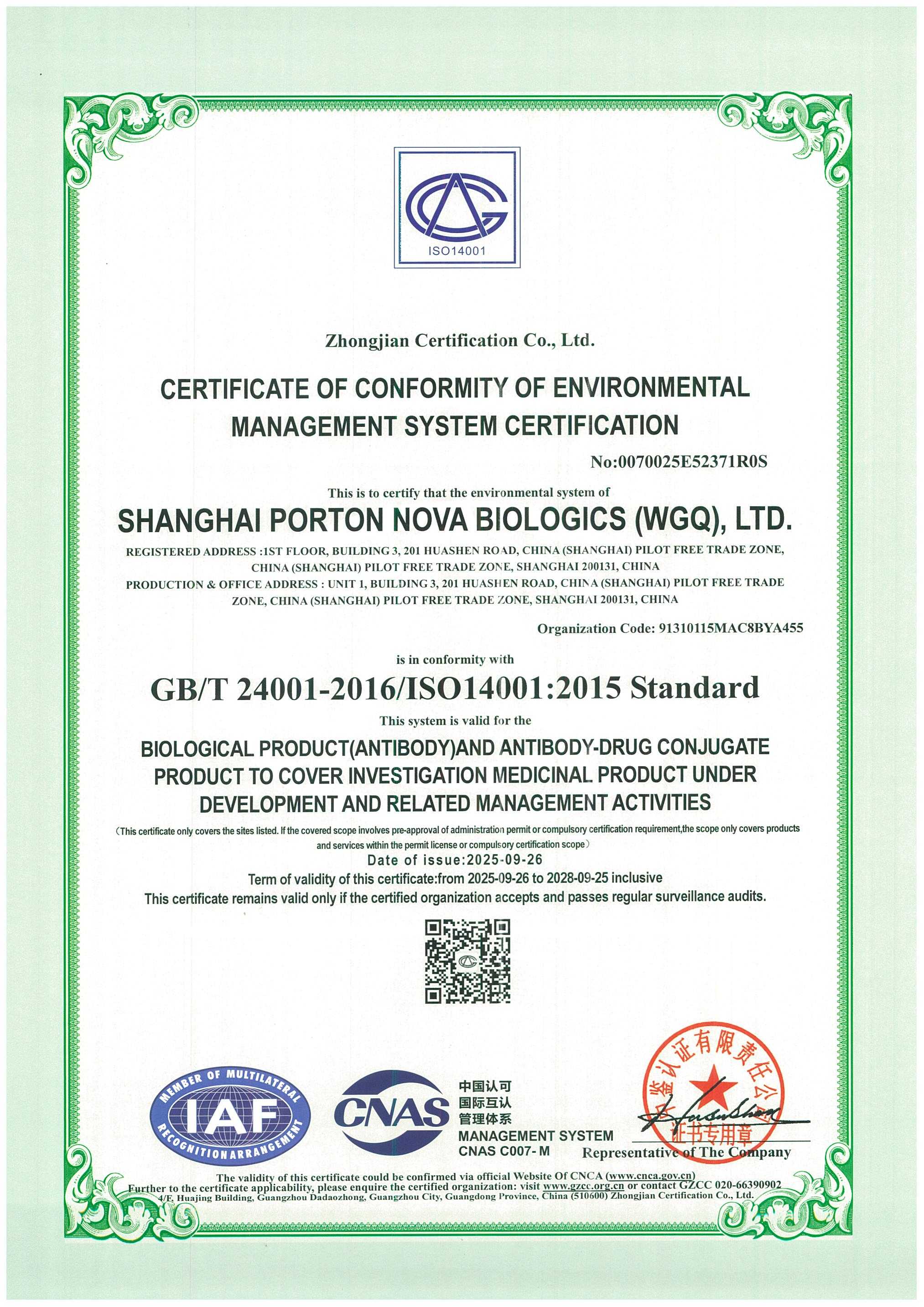Environmental management
Our goal is to improve the effectiveness of our environmental management system and to further adopt ESG practices of “zero loss and sustainable”.
Pollutant production and discharge management
The Company adopts a two-pronged strategy of "source control combined with end treatment". We focus on source control, process improvement, as well as energy conservation and consumption reduction in the production department and guarantee the operation of environmental facilities to meet the standards to actively promote clean production and sustainable development and to minimize the emission of pollutants.
Green chemistry
The Company actively incorporates international advanced green chemistry concepts into the R&D process, minimizes or replaces the use of environmentally hazardous reagents in accordance with the 12 principles of green chemistry, and seeks alternatives through R&D, including alternative routes and processes to reduce and replace the use of hazardous reagents. It performs EHS assessments on potentially hazardous steps, optimizes process parameters and control methods, and proactively develops and employs environmentally friendly green pharmaceutical technologies such as biocatalysis, metal catalysis and continuous chemistry to improve yield, reduce waste generation and emissions, and recover solvents and heavy metals.
Climate change
The Company has incorporated climate change issues into its overall ESG governance and management structure. The Board of Directors’ Strategy and ESG Committee is responsible for guiding and formulating the targets, strategies, organization, and management policies for climate change, and supervising the progress of the implementation of the targets, while the ESG Executive Committee composed of the management team is responsible for formulating the climate related work plan and providing resources. The Climate Change Working Team is responsible for coordinating and advancing the implementation of relevant work plans and targets. The Company has formally submitted the commitment to the SBTi (the Science Based Targets initiative) in February 2024. The near-term targets regarding greenhouse gas emission reduction have been verified by SBTi in March 2025.







